I was going to do a bigger piece on the reaction to last night’s Oscars, but the more I worked at it the less I wanted to do it. I read a lot of commentary this morning, and much of it seemed illogical. Most of it is anti-MacFarlane, and while everyone's entitled to their two cents, some of it seems entirely out of left field. The notion that actresses feel the need to starve themselves for weeks and get all dressed up in sequins on the night is MacFarlane's fault seems... spurious at best.*
*Multiple articles I read made this very case. I think there may be some confusion at the amount of power an Oscar host has.
There has been a lot of commentary about the jokes MacFarlane made during the show, none of it good. What struck me is that all the articles seem to contain the line “the joke is that…” followed by an explanation that shows a real misunderstanding of the joke. Whether you liked MacFarlane’s Quvenzhané Wallis joke or not (“at age 9, Quvenzhané Wallis is the youngest Best Actress nominee ever. To give you an idea of just how young she is, it’ll be 16 years before she’s too old for Clooney.”), the joke’s at George Clooney’s expense, not Wallis’. The idea that “the joke is that black women aren’t good for anything other than being sexual objects” is a deliberate misreading, and a damaging one. We train ourselves to view everything as an attack, and then we can’t tell the difference between real prejudice and the echoes of our own voices.
If you feel that it’s wrong to include Wallis in any such joke that speaks about her eventually being a woman who can date people because she’s too young, I think that’s fine. But that’s not what’s being argued.
The Onion’s joke is more problematic, but again suffers from a lot of people misunderstanding what the joke is – or rather, what it isn’t. It isn’t a personal attack on Wallis. It isn’t an “indefensible expression of racism” or an “abhorrent verbal attack on a child.” (it’s not even verbal!) If you’ll indulge me as I do the very thing I was complaining about earlier: it’s a joke about how everyone loves Wallis and it’s impossible to find her anything but charming, and so to call her a bad word is patently ridiculous.
You don’t have to like the joke. You can find the joke horrendously offensive. But you shouldn’t make it into something it isn’t for the sake of being offended more.
Since I meant to start this as a defense of MacFarlane, let me loop back around: I thought he did a good job. It was designed to be a little something-for-everyone, and the backdoor way of landing edgier jokes through the guise of James Kirk-from-the-future showing him clips of his critically-panned show was a good idea. The criticism against his show being “utterly free of laughs” seems more a result of people wanting him to be terrible more than it actually being bad - the Hollywood Reporter had a good piece this morning about this being a no-win situation for MacFarlane, but that he ended up winning anyway.
I was most enthused that he went out of his way to actually host the show – appearing before each presenter to make a crack as they walked out, introducing guests and performances, etc. Most hosts do a big comedy bit in the beginning, then appear only sporadically throughout, and the show suffers from it. Even Tina Fey and Amy Poehler, as great as they were at the Globes, were absent throughout much of the telecast. MacFarlane made sure that the show never felt like it was going off the rails, despite a number of truly abysmal musical performances.
Anyway, let’s check in on the results and… not bad. I ended up having a pretty good showing: I missed only 7 out of the 24 categories. I actually thought I did better than that, because during the show, I seemed to never be wrong*. But it also became apparent early in the night that the Academy liked all of the films nominated (except Zero Dark Thirty), and wanted to honor as many as possible. Therefore, my gamble on Amour not winning Best Foreign Film proved a bad one, but you’ve got to take a few risks if you’re hoping to stand out. Everyone remembers the time you correctly picked the 16-seed to upset Duke, y’know? That metaphor may not apply here, since no one will ever remember any of these picks I made, including me.
*Though that’s also how I normally feel, so I guess I can’t trust my gut on that one.
Of the ones I missed, I was surprised to see Lincoln get little love: the Oscars gave Best Supporting Actor to Christoph Walz instead of Tommy Lee Jones (a decision I heartily endorse, by the way), and gave Best Screenplay to Argo (a decision I mildly disagree with, but fine). Not to mention that Spielberg was expected to land Best Director, but it went to Ang Lee instead, which I’m ecstatic about.
Okay, fine, not ecstatic. I’m smiling, though. Good for the Academy. It was the best-directed film of the lot, and I know a lot of voters were put off by the film’s religious content. So, to see the movie land the award while espousing a deep belief in God? A nice sight to see.







